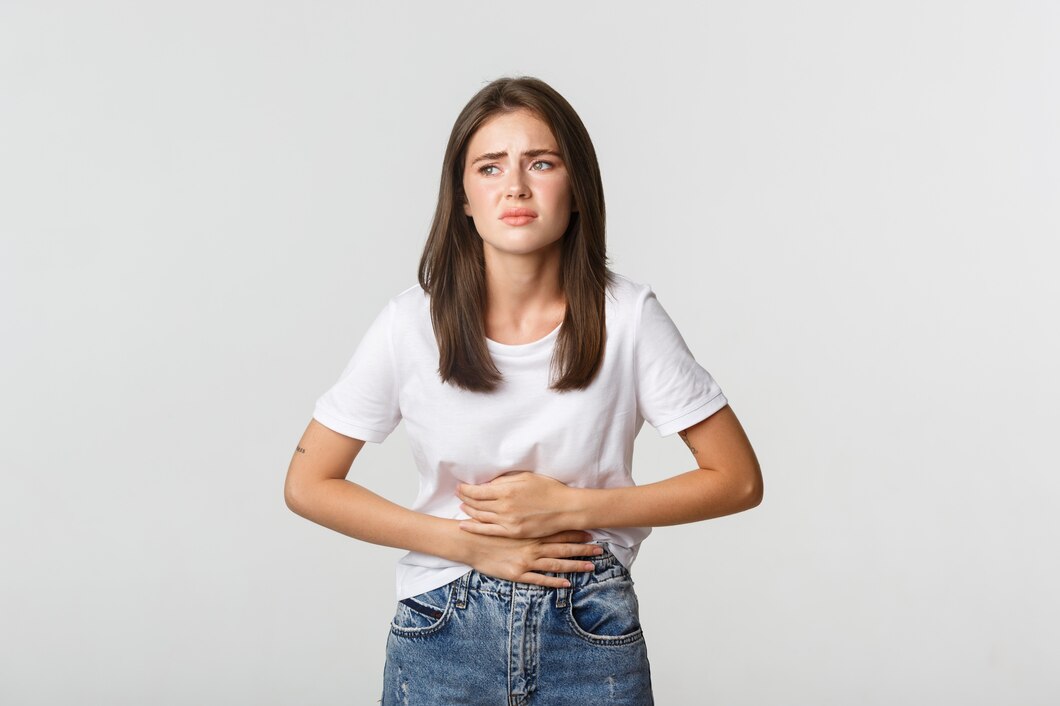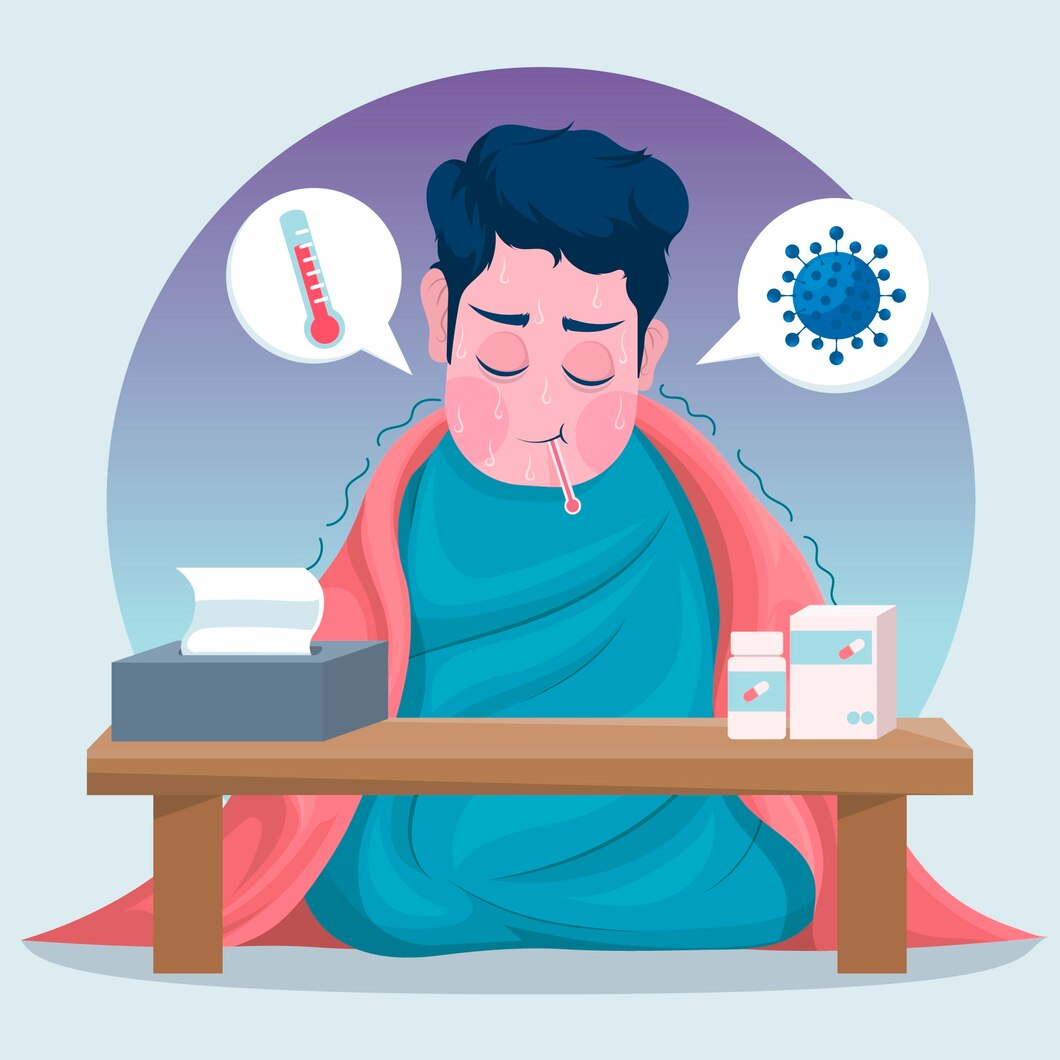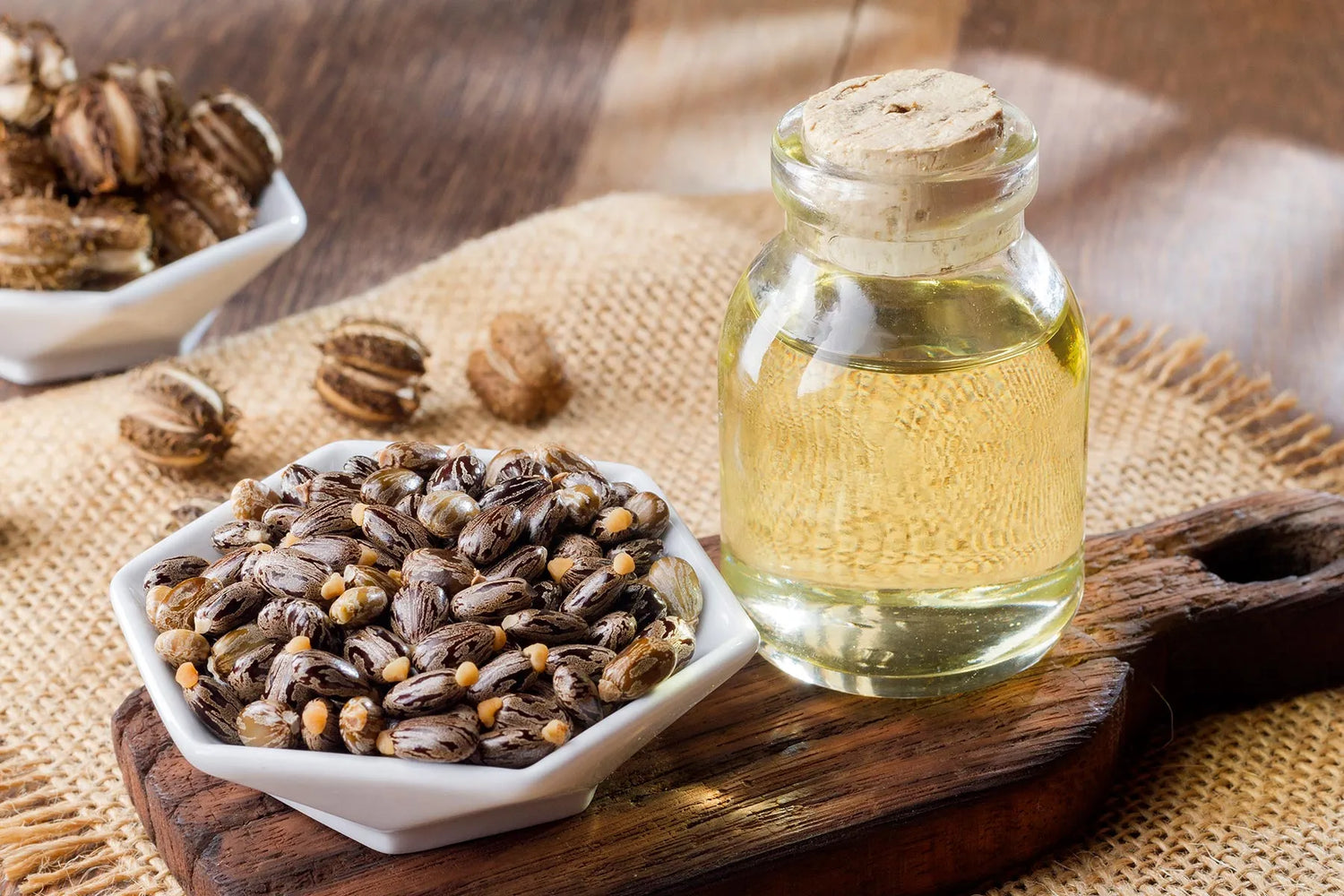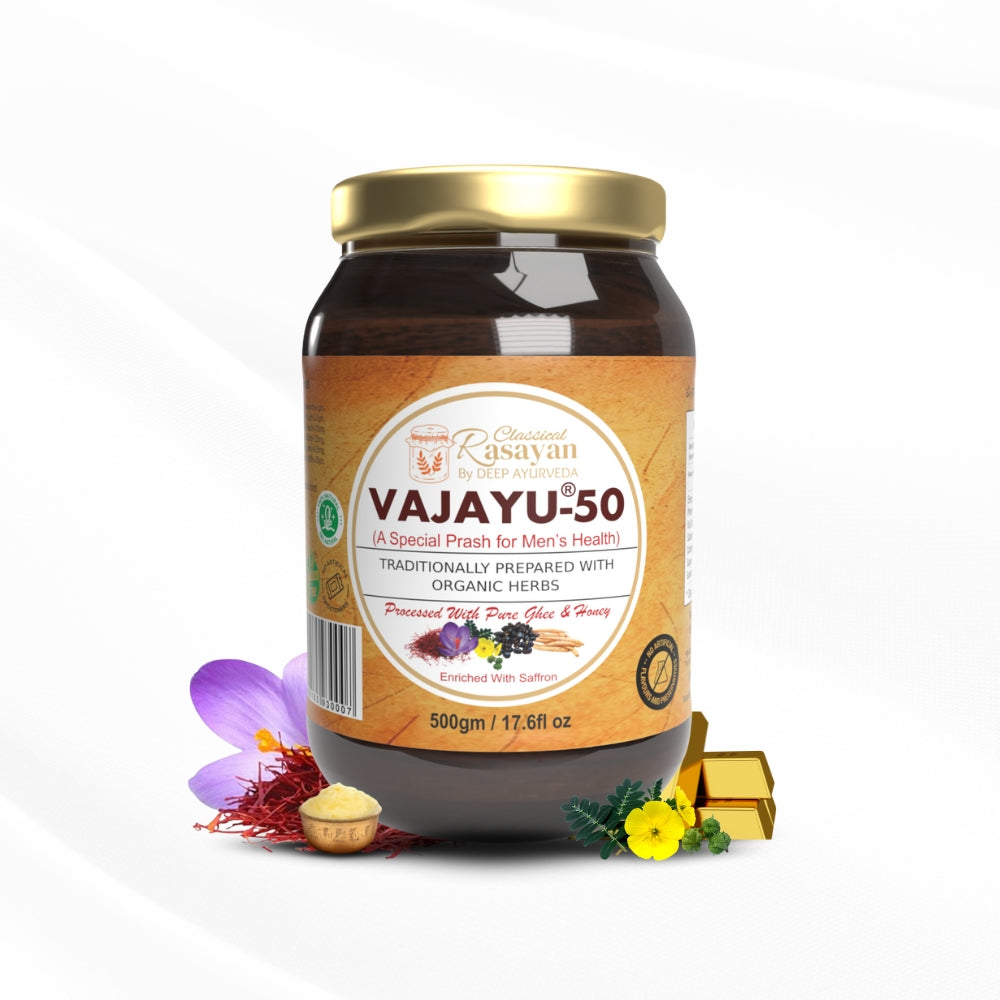समाचार
Top 8 Health Benefits of Trikatu Powder
Discover the power of Organic Trikatu Powder – a natural Ayurvedic blend that supports digestion, boosts immunity, and promotes overall wellness. Pure, safe, and effective for daily use.
Read moreसमाचार
Natural Ayurvedic Solutions for Digestive Problems
Struggling with indigestion, acidity, or bloating? Ayurveda offers natural solutions to restore digestive balance and improve gut health. Explore time-tested herbal remedies, dietary tips, and lifestyle practices that help soothe your stomach naturally and promote overall wellness.
Read moreAyurvedic Medicine for Premature Ejaculation: Natural Remedies & Treatment Guide
Vajayu Prash | Ayurvedic Medicine for Premature Ejaculation ✅1+ Lakh Customer Trust ✅ 100% Ayurvedic & Safe ✅ Boosts Energy & Strength ✅ Improves Stamina & Confidence ✅ Supports Hormonal Balance ✅ No Side Effect ₹1499.00 ₹1874.00 Buy Now Premature ejaculation (PE) is one of the most common yet least discussed concerns in men’s health. For many, it creates not just physical dissatisfaction but also emotional stress and strained relationships. While conventional treatments may offer temporary relief, Ayurveda focuses on long-term restoration of balance and vitality. In this article, we will explore Ayurvedic Medicine for Premature Ejaculation, its natural approach, home remedies, and the role of Vajayu® 50 Prash by Deep Ayurveda—a premium formulation crafted with 30 herbs, gold, saffron, and pure cow ghee, designed through 20 years of Ayurvedic expertise. What is Premature Ejaculation? Premature ejaculation happens when a man ejaculates sooner than he or his partner would like, often within a short period of sexual activity. Occasional early climax is not unusual, but when it becomes a pattern, it can affect confidence and intimacy. In Ayurveda, this condition is seen as a disturbance of Vata dosha combined with weakness of Shukra Dhatu (reproductive tissues). A man with weakened Shukra has reduced stamina, oversensitivity, and less control over ejaculation. This is why Ayurvedic Medicine for Premature Ejaculation focuses on nourishing tissues, strengthening nerves, and calming the mind. Why Ayurveda for Premature Ejaculation? Modern medicine often provides short-lived solutions, while Ayurveda looks deeper. By using a holistic approach, Ayurvedic Medicine for Premature Ejaculation works on: Rejuvenating Shukra Dhatu and improving stamina Reducing stress, anxiety, and performance pressure Balancing Vata dosha for better control Nourishing the nervous system Enhancing strength and energy naturally This makes Ayurvedic premature ejaculation treatment a path not just for quick relief but for sustainable confidence and well-being. Causes of Premature Ejaculation (Ayurveda View) According to classical Ayurvedic principles, the root causes include: Imbalanced Vata dosha – causing nervous system instability and hypersensitivity Weak reproductive tissues (Shukra Dhatu) – leading to poor stamina Anxiety and psychological stress – aggravating early climax Weak digestion (Agni & Ojas deficiency) – lowering vitality Overexertion & excess sexual activity – depleting Shukra Dhatu Unhealthy habits – alcohol, smoking, irregular food, poor sleep When these causes are addressed, premature ejaculation treatment becomes effective and long-lasting. Key Ayurvedic Herbs for Premature Ejaculation Ayurveda offers time-tested herbs that support men’s reproductive health. These include: Ashwagandha – Strengthens nerves, reduces anxiety, builds stamina Shilajit – Restores vitality and energy with essential minerals Safed Musli – Known as a natural aphrodisiac, enhances sexual vigor Kaunch Beej – Improves testosterone and enhances nerve strength Gokshura – Supports reproductive functions and hormonal balance Kapikacchu & Bala – Improve nerve health and control over ejaculation These botanicals form the backbone of many Ayurvedic Medicines for Premature Ejaculation, including advanced formulations like Vajayu® 50 Prash. Vajayu® 50 Prash – Deep Ayurveda’s Premium Formulation Among Ayurvedic solutions, Vajayu® 50 Prash is one of the most comprehensive and scientifically formulated remedies for men’s vitality. What Makes Vajayu® 50 Prash Unique? Developed after 20 years of Ayurvedic clinical practice Contains 30 carefully selected Ayurvedic herbs Enriched with Swarna Bhasma (Gold) for rejuvenation and immunity Blended with Kesar (Saffron) to uplift energy, mood, and stamina Prepared with pure cow ghee, ensuring deep tissue nourishment Based on Vajikarana Rasayana therapy principles of Ayurveda This combination makes it a powerful Ayurvedic Medicine for Premature Ejaculation, going beyond just symptom relief to rebuild long-term stamina and control. Benefits of Vajayu® 50 Prash in Premature Ejaculation Strengthens reproductive tissues (Shukra Dhatu) Improves control by reducing hypersensitivity of nerves Boosts stamina and energy naturally Calms the mind and reduces stress-related performance issues Acts as a Rasayana (rejuvenative) for overall men’s health For best results, it is recommended as a minimum 3-month course. Ayurvedic Therapies for Support Alongside herbal medicines, Ayurveda recommends therapies to support premature ejaculation treatment: Abhyanga (oil massage) – reduces stress and nourishes tissues Shirodhara – calms the nervous system and balances Vata Vasti (medicated enema) – strengthens reproductive and nervous systems Lifestyle & Diet for Better Results Ayurveda emphasizes a supportive lifestyle: Eat nourishing foods – milk, almonds, dates, ghee, pumpkin seeds Avoid toxins – smoking, alcohol, junk food Practice Yoga & Pranayama – Vajrasana, Anulom Vilom, and Bhramari Sleep well – restore Ojas and nervous system balance Manage stress – through meditation and mindful practices Home Remedies You Can Try Simple home-based remedies can enhance the effect of Ayurvedic Medicine for Premature Ejaculation: Ashwagandha milk at bedtime Dates and almonds soaked overnight Warm saffron-infused milk for stamina Honey with ghee as a natural tonic When to See a Doctor If premature ejaculation continues to cause distress, consult an Ayurvedic physician. A personalized plan including Vajayu® 50 Prash, therapies, and lifestyle corrections can provide lasting results. Conclusion Premature ejaculation is not just a physical issue—it impacts emotional well-being and relationships. Ayurveda offers a natural, safe, and sustainable way to regain control and vitality. Vajayu® 50 Prash from Deep Ayurveda represents the pinnacle of Ayurvedic Medicine for Premature Ejaculation—a classical yet modernized formulation blending 30 herbs, gold, saffron, and ghee. Crafted with two decades of expertise, it is more than a medicine—it is a complete rejuvenation therapy for men’s health. If you are looking for an authentic and effective premature ejaculation treatment, Ayurveda and Vajayu® 50 Prash provide a trusted solution for long-term stamina, confidence, and holistic well-being.
Read moreHealing Rheumatic Fever Naturally with Deep Ayurveda
Introduction Rheumatic Fever (RF) is a post-infectious autoimmune inflammatory disorder that typically follows untreated Group A Streptococcal (GAS) pharyngitis. While modern medicine provides symptomatic relief through antibiotics and anti-inflammatory medications, Ayurveda offers a deeper understanding, focusing on the underlying metabolic dysfunction (Āma), Doṣa vitiation, and systemic immune dysregulation. At Deep Ayurveda, we adopt an integrative treatment strategy rooted in classical Ayurvedic principles—aiming not only for symptom control but also for detoxification, immune modulation, and long-term prevention of recurrence. Understanding Rheumatic Fever in Modern Medicine What is Rheumatic Fever? Rheumatic Fever is an autoimmune sequel to a streptococcal throat infection, wherein the immune system mistakenly targets the body’s own tissues—particularly the joints, heart, skin, and central nervous system. This leads to inflammation and, if untreated, may result in permanent cardiac damage known as Rheumatic Heart Disease (RHD). Causes and Risk Factors Primary Cause: Group A beta-hemolytic streptococcal infection (GAS pharyngitis) Risk Factors: Age group 5–15 years Poor hygiene and overcrowding Recurrent untreated throat infections Genetic predisposition Symptoms Based on Jones Criteria Major Criteria Carditis: Inflammation of heart valves, myocardium, and pericardium Migratory Polyarthritis: Pain and swelling moving from joint to joint Sydenham’s Chorea: Jerky, involuntary movements Erythema Marginatum: Characteristic pink skin rash Subcutaneous Nodules: Painless, firm lumps under the skin Minor Criteria Fever Arthralgia (joint pains) Elevated ESR, CRP ECG changes: Prolonged PR interval Diagnostic Investigations Throat Swab Culture Anti-streptolysin O (ASO) titre Echocardiography, Electrocardiogram (ECG) Inflammatory markers: ESR, CRP Treatment Approach in Modern Medicine Antibiotics: Long-term penicillin prophylaxis Anti-inflammatory Drugs: Aspirin, NSAIDs, corticosteroids Heart Protection: Diuretics, ACE inhibitors in carditis Monitoring for Rheumatic Heart Disease (RHD) 🌿 Ayurvedic Perspective on Rheumatic Fever Ayurvedic Correlation of Rheumatic Fever In Ayurvedic terms, Rheumatic Fever corresponds to a combination of Āmavāta, Jwara, and Hr̥drogaja Vikāra. It results from impaired Agni (digestive fire), leading to Āma formation (metabolic toxins) and vitiation of Vāta and Kapha doṣas. These toxins circulate and lodge into the joints, heart, and neurological tissues, triggering systemic inflammation. 🔸 "ज्वरः सर्वरोगाणां प्रधानं उच्यते।" – Fever is considered the root of many systemic disorders. (Charaka Saṁhitā, Sūtrasthāna 18/44) Ayurvedic Causative Factors (Nidāna) Mandāgni (weakened digestion) Ajīrṇa (indigestion) causing Āma formation Viruddhāhāra (incompatible food combinations) Excessive intake of heavy, unctuous, and cold foods Suppression of natural urges Emotional stress and sedentary lifestyle 🔸 "सञ्चितं कफवातेन सह संमिलितं रसे। समुत्पन्नं हि तदामं सन्धिषु जनयेत् रुजम्॥" (Mādhava Nidāna, Āmavāta 25/1) Ayurvedic Symptoms (Lakṣaṇa) Symptoms Mimicking Āmavāta Fever with chills and migrating joint pain Sandhi Śūla (joint pain) and Śopha (swelling) Stabdhata (joint stiffness), Angamarda (body ache) Aruchi (loss of appetite) and Apakti (indigestion) Cardiac Symptoms Mimicking Hr̥drogaja Vikāra Hr̥daya Śūla (chest pain), Śvāsa (dyspnea) Bhrama (giddiness) and Hr̥daya Spandana (palpitations) Ayurvedic Diagnostic Principles Doṣa: Vāta-Kapha predominance Dūṣya: Rasa, Rakta, Māmsa, and Asthi Dhātus Srotas: Raktavaha, Mānsavaha, and Prāṇavaha Srotas Nadi Parīkṣa: Indicative of Saama (toxic) Vāta-Kapha pulsation Jwara Classification: Saamajvara with associated Āmavāta traits Ayurvedic Line of Treatment (Chikitsā Sūtra) The goal is Āmapācana (digestion of toxins), Doṣa Shamana, strengthening of Agni, and rejuvenation of Dhātu and Ojas. Step 1 – Āmapācana (Toxin Digestion) Herbs and Formulas Śuṇṭhī (Zingiber officinale), Gudūcī (Tinospora cordifolia) Āmavatārika Kashayam, Ajmodādi Churna, Vaishvānara Churna Step 2 – Vāta-Kapha Doṣa Shamana Yogarāj Guggulu, Simhanāda Guggulu, Rāsnādi Kwātha Herbs with Kaṭu (pungent) and Tikta (bitter) rasas for inflammation modulation Step 3 – Anti-inflammatory & Shothahara Therapy Dashamūla Kwātha, Maharasnādi Kwātha Eranda Mūla Taila for local swelling and stiffness Step 4 – Hr̥dya Chikitsā (Cardiac Protection) Arjuna Kṣīra Pāka for cardiac tonicity Hr̥dayārṇava Rasa, Punarnavādi Mandura for managing cardiac inflammation and anemia Step 5 – Rasāyana (Rejuvenation Therapy) Chyavanaprāsha Avaleha, Āmalakī Rasāyana Ashwagandhādi Lehya for rebuilding tissue strength and immune balance Step 6 – Panchakarma Therapies Recommended Panchakarma Protocols Snehana (oleation): Mahanārāyaṇa Taila or Dhanvantaram Taila abhyanga Swedana (sudation): Nādi Sweda for joint detox Basti (medicated enema): Dashamūla Nirūha Basti, Nirgundi Taila Anuvāsana Basti 🔸 "वातं कफं च यद्यस्ति ज्वरे तीक्ष्णैर्विलायनैः। तिक्तं कटुं च सेवितव्यं कफज्वरेषु सम्मतम्॥" (Charaka Cikitsāsthāna 3/124) : Ayurvedic Remedies for Rheumatic Fever at a Glance Condition Remedy Fever with Āma Āmavatārika Kashayam, Gudūcī Churna Joint Pain & Swelling Yogarāj Guggulu, Simhanāda Guggulu Cardiac Inflammation Arjuna Kṣīra Pāka, Hr̥dayārṇava Rasa Systemic Inflammation Dashamūla Kwātha, Rasnā Saptaka Kwātha Immunity & Ojas Promotion Chyavanaprāsha, Āmalakī Rasāyana Ayurvedic Diet & Lifestyle Recommendations Pathya (Wholesome Guidelines) Warm, easily digestible meals like Yavāgu (gruel), Mudga yūṣa (green gram soup), and Takra (buttermilk) Herbal decoctions with Gudūcī, Rāsnā, Dashamūla Adequate rest and mental peace Regular Abhyanga and warm water intake Apathya (Avoidable Practices) Cold, heavy, fermented, or oily foods Exposure to cold and damp weather Daytime sleeping, night-time wakefulness Emotional stress and physical overexertion Why Choose Deep Ayurveda for Rheumatic Fever Treatment? Deep Ayurveda, a leading Ayurvedic centre in Mohali, Panchkula, and Chandigarh, offers advanced and authentic Ayurvedic care for Rheumatic Fever and related autoimmune disorders. Our Distinctive Strengths ✅ Ayurveda physicians trained in autoimmune, cardiac, and pediatric diseases ✅ WHO-GMP-certified proprietary medicines & classical formulations ✅ Customized Panchakarma protocols under expert supervision ✅ Evidence-based integrative diagnosis aligning Ayurvedic and modern tests ✅ Personalized diet, detox, and Rasāyana strategies for long-term immunity Conclusion: Embrace Holistic Healing with Deep Ayurveda Modern medicine addresses Rheumatic Fever symptomatically, but often falls short in preventing relapses and restoring systemic balance. Ayurveda, through its time-tested methods of Āmapācana, Doṣa Shamana, Rasāyana, and Panchakarma, offers a comprehensive, root-cause-based healing pathway. If you or your loved one is struggling with recurrent joint pain, cardiac inflammation post-strep infection, or unexplained fevers, consult Deep Ayurveda for an authentic, classical Ayurvedic solution.
Read moreCastor Oil (Erand Tail) – Benefits & Healing Uses
Ricinus communis or castor plant is a widely traditionally used and potent medicinal plant amongst all the thousands of medicinal plants. Castor oil is a vegetable product extracted from Ricinus communis (castor seed). Eranda Taila (Castor oil) is a wonderful Ayurvedic herbal oil which can rejuvenate the body and can be administered in many ways. Its unique qualities make it a go-to natural solution in many health and beauty regimens. Properties of Castor Oil- Botanical Name: Ricinus communis Family: Euphorbiaceae Rasa (Taste): Katu (Pungent), Tikta (Bitter), Madhura (Sweet)Guna (Qualities): Snigdha (Unctuous), Guru (Heavy), Sara (Spreading), Picchila (Sticky)Veerya (Potency): Ushna (Hot in potency)Vipaka (Post-digestive effect): Katu (Pungent)Dosha Karma (Effect on Doshas):Vatahara (Balances Vata)Kaphahara (Balances Kapha) Benefits Of Castor Oil- 1. In Vataj Rog -Erand Tail (Castor Oil) is a highly effective Ayurvedic remedy for managing various Vata disorders such as Rheumatoid Arthritis (Amavata), Dysmenorrhea (Kashtartava), and Constipation (Vibandha). In Rheumatoid Arthritis, Erand Tail works as an anti-inflammatory agent that reduces joint pain and stiffness and can be used both orally and in Basti karma (medicated enema).In Dysmenorrhea, it acts as a natural antispasmodic and vaat anuloman dravya, easing painful menstrual cramps and promoting smoother flow. 2. Liver Detoxification-Castor oil (Erand Tail) is valued in Ayurveda for its powerful detoxifying and cleansing properties, especially in relation to the liver and digestive system. It possesses tikshna (penetrating), ushna (heating) and virechaka (purgative) qualities, which help stimulate the liver and promote the removal of ama (toxins) from the body. When taken in appropriate doses, castor oil enhances bile flow, supports liver function, and clears accumulated waste from the intestines .It is often used in Ayurvedic Panchakarma therapies, particularly Virechana karma, to expel deep-seated toxins and restore digestive fire (agni). Castor oil thus serves as a natural liver cleanser, improving metabolism. 3.Promotes Hair Growth- Rich in ricinoleic acid and omega-6 fatty acids, castor oil boosts blood circulation to the scalp, strengthens roots, and promotes healthy hair growth. It also reduces dandruff and split ends. 4. Nourishes Dry Skin- Castor oil is a natural humectant that deeply moisturizes the skin, reduces inflammation, and heals dry, flaky patches.Rich in ricinoleic acid, it deeply moisturizes dry, rough, or flaky skin, making it ideal for Vata-type (dry)skin conditions. 5. Natural Laxative- Ayurveda recommends castor oil as a mild yet effective purgative (Virechana karma) to cleanse the colon and relieve chronic constipation. Ayurveda Reference of Erand Tail(Castor Oil)- एरण्ड तैलं वातघ्नं स्नेहनं च अति श्रेष्ठम् | सर्ववातविकारेषु पथ्यं चैव सततम् ||Bhaishajya Ratnavali – Amavata Chikitsa (Chapter 29) Castor oil is excellent for pacifying Vata dosha and is considered one of the best for internal oleation. It is beneficial and suitable in all Vata disorders. एरण्ड तैलं मधुरं स्निग्धम् उष्णं वातहरं परम् | विरेचनं च पित्तस्य बद्धपुरीषनाशकृत् ||Charaka Samhita – Siddhi Sthana (4/9) Eranda Tail is sweet, unctuous, hot in potency, highly effective in pacifying Vata, and works as a purgative to eliminate vitiated Pitta and hardened stools. एरण्डमूलं वृष्यवातहराणाम्॥ (च.सू २५) From all the herbs which have the capability for pacifying vata dosha and are aphrodisiac in nature, eranda is the best. Disorders in which Erand Tail(Castor Oil) is Beneficial- 1. Rheumatoid Arthritis 2. Osteoarthritis 3. Sciatica 4. Stiffness and muscular spasm 5. Gall Bladder Stones 6. Constipation 7. Piles 8. gas 9. Dysmenorrhea 10. Fatty Liver 11. Melasma 12. Dry Skin 13. Hairfall or thin hair 14. Jaundice 15. Ascites Conclusion- Castor oil is truly a multi-purpose Ayurvedic remedy with profound benefits for internal and external health. Regular use of castor oil nourishes the skin from within, supports tissue regeneration, and delays signs of aging, making it a natural and holistic solution for maintaining soft, healthy, and youthful skin. It also supports hair growth and liver detoxification. Whether applied topically or taken under guidance, castor oil is a timeless Ayurvedic tool for holistic health.
Read moreUnderstanding Prostate Enlargement: Causes, Symptoms and Effective Treatments
As men age, changes in reproductive and urinary health become common — and one such issue is Prostate Enlargement. It may begin with just frequent urination at night but can soon lead to discomfort, poor sleep, and urinary tract complications if left untreated. In this blog, lets have a look on what are the cause of prostate enlargement, what are the symptoms to look out for, and how prostate enlargement treatment can be approached naturally with Ayurveda. What is the Prostate and Why Does It Enlarge? The prostate is a small, walnut-sized gland found below the bladder in men. Its main function is to produce fluid that nourishes sperm. With age, the prostate can increase in size — this condition is called Benign Prostatic Hyperplasia (BPH). It is not cancerous, but it can cause urinary problems. What Are the Cause of Prostate Enlargement? Several factors are linked with Prostrate enlargement : 1. Aging and Hormonal Changes As men age, levels of testosterone drop while estrogen slightly increases. This hormonal shift may lead to prostate cell growth. 2. DHT (Dihydrotestosterone) Accumulation DHT is a byproduct of testosterone. In older men, DHT levels may remain high in the prostate, causing it to grow larger. 3. Genetics Men with a family history of prostate issues are at a higher risk. 4. Sedentary Lifestyle & Obesity Lack of physical activity, poor diet, and weight gain may lead to hormonal imbalance and inflammation. 5. Chronic Inflammation Long-term low-grade inflammation in the prostate region can also be a trigger. Signs & Symptoms of Prostate Enlargement Prostate enlargement can affect urinary function. Common symptoms include: Frequent urination, especially at night (Nocturia) Weak or slow urine flow Feeling that the bladder isn’t fully empty Urgency to urinate Dribbling at the end of urination Mild pelvic pain or pressure If left untreated, it may lead to bladder infections or kidney issues. Diagnosis: How Is Prostate Enlargement Confirmed? To confirm BPH and rule out serious problems, the following tests may be done: Digital Rectal Exam (DRE) – doctor feels the prostate through rectum PSA Blood Test – measures Prostate Specific Antigen to check for inflammation or cancer risk Ultrasound or MRI – checks the size and condition of the prostate Urine Flow Study – tests how fast and complete your urination is Post-void Residual Test – checks how much urine remains after urinating Early testing helps avoid complications later. The Ayurvedic Perspective In Ayurveda, prostate enlargement relates to Vata and Kapha imbalance in the urinary system (Mutravaha srotas). It’s also linked with accumulation of Ama (toxins), poor digestion (Mandagni), and weak reproductive energy (Shukra dhatu kshaya). Ayurvedic Goals: Shrink the enlarged gland Improve urinary flow Reduce inflammation Support hormonal balance Detoxify the body and strengthen reproductive health Diet and Lifestyle for Prostate Health Best Foods for Prostate: Pumpkin seeds – rich in zinc, supports prostate function Amla & turmeric – reduce inflammation Green leafy vegetables – cleanse and detox Whole grains & flaxseeds – rich in fiber and omega-3 Warm water with cumin/fennel seeds – aids digestion and reduces urinary discomfort Avoid: Red meat and spicy, oily food Caffeine and alcohol Processed foods and refined sugars Late-night eating or sedentary habits Lifestyle Tips: Do light exercises and yoga (Malasana, Vajrasana) Practice Anulom-Vilom Pranayama Avoid holding urine for long Manage stress with meditation Get quality sleep every night Ayurvedic Herbs for Prostate Enlargement Treatment Ayurveda uses natural herbs that help reduce gland size, improve urine flow, and strengthen reproductive energy. Key Herbs: Varun (Crataeva nurvala) – Supports urinary health and reduces swelling Gokshura (Tribulus terrestris) – Tonic for urinary and reproductive system Punarnava (Boerhavia diffusa) – Anti-inflammatory and diuretic Kanchnaar Guggul – Clears toxins Shilajit – Improves vitality and hormonal balance Ashwagandha – Reduces stress, improves hormonal function Prostate Management Pack by Deep Ayurveda Looking for a ready-to-use Ayurvedic solution? Try the Prostate Ayurvedic Management 30 Days Pack from Deep Ayurveda, ayurvedic experts formulated herbal protocol. What’s Inside: Urocare Capsules – Contains Gokshura, Varun, Punarnava for managing prostate size, urine flow, and inflammation Curcumin Capsules – Helps reduce inflammation and Supports healthy digestion and overall immunity. Chandra Prabha vati- Supports kidney & bladder function, detoxifies body and Aids in urinary tract infections (UTI) Kachnaar Guggal- Reduces swelling & detoxifies the body Key Benefits: Helps shrink enlarged prostate Improves urine flow and reduces urgency Relieves bloating, pelvic pressure, and night urination 100% plant-based and free from chemicals Safe for long-term use Final Thoughts Now that you understand what are the cause of prostate enlargement, it’s important to act early. Prostate issues don’t just affect urination — they affect sleep, energy, and overall wellbeing. Instead of only relying on short-term symptomatic relief, adopt a more holistic approach with Ayurveda, diet correction, lifestyle changes, and effective herbal solutions like Deep Ayurveda’s Prostate Management Pack. Taking care of your prostate today ensures a more active, comfortable, and healthier life tomorrow.
Read moreEffective Tips to Improve Digestive System: An Ayurvedic Perspective
Discover how Ayurveda can naturally enhance your digestive health. This guide explores simple, effective tips rooted in ancient Ayurvedic wisdom—from dosha-balancing diets and gut-friendly herbs to mindful lifestyle changes and yoga practices—all aimed at improving digestion and boosting your overall well-being.
Read more








